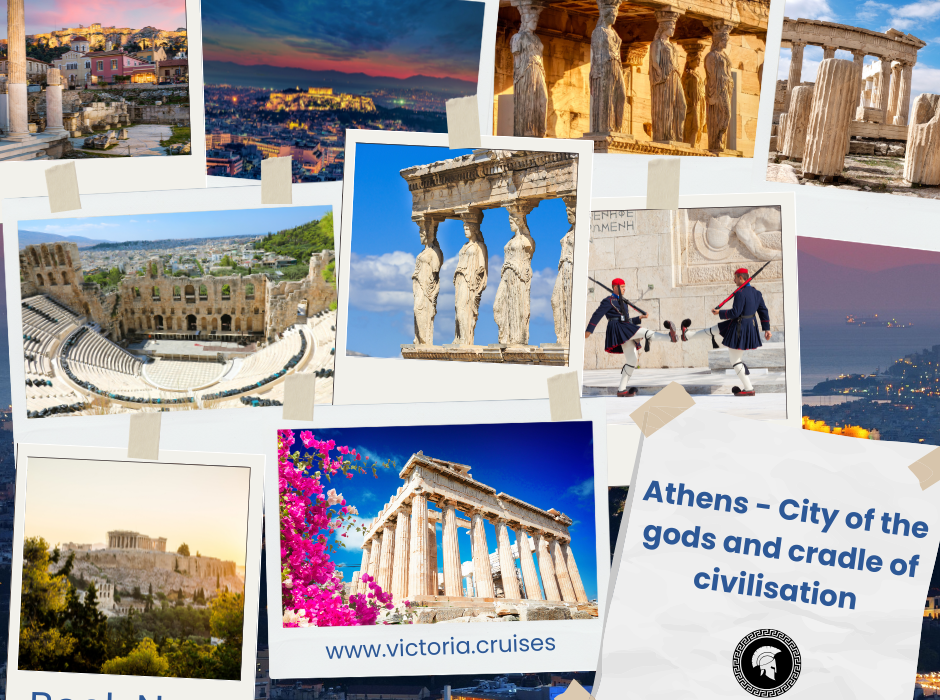Piraeus is the largest port city in Greece and the gateway to Athens by sea. Although many people think of it as a stopover on their way to the Greek islands, the city offers much more than that. Piraeus is full of history, a vibrant cultural life and excellent gastronomic experiences. When in Athens, take time to explore the port city.
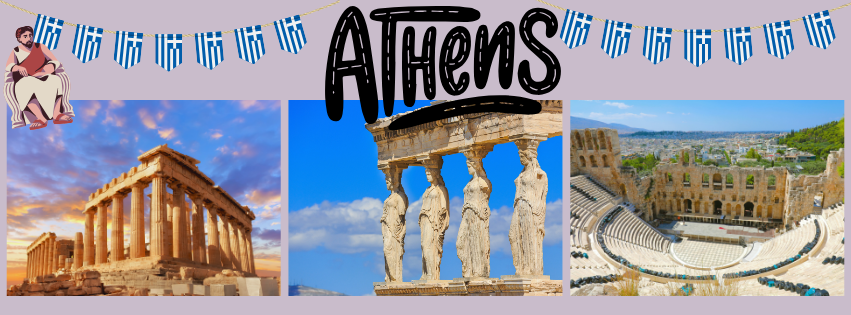
Did you know? Piraeus is the largest Mediterranean port in terms of passenger traffic and commercial activity, and most visitors to Athens simply see it as a transit point to the Aegean islands.
History
Piraeus has been an important port since ancient times, fortified by Themistocles in 493 BC to become the naval centre of Athens. The city was connected to Athens by the so-called „Long Walls”, providing protection against attacks. It was ruled by the Romans, Byzantines and Ottomans, each era leaving its mark. Today Piraeus is one of Europe’s largest and busiest ports, where the old world meets the new.
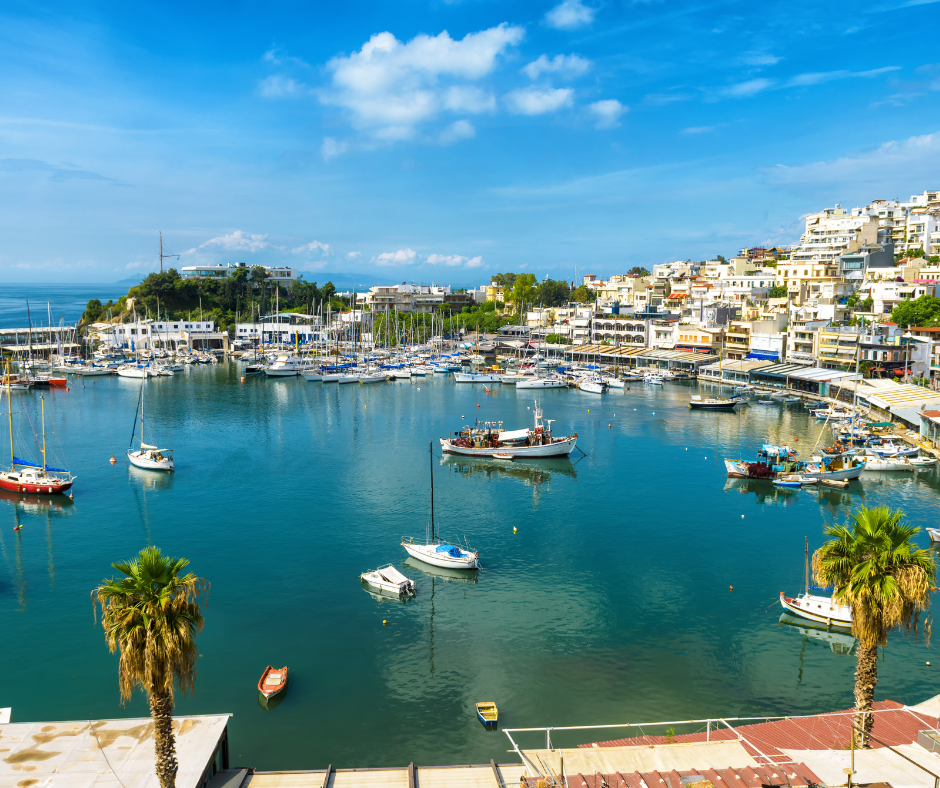
Places to visit
For lovers of maritime history, the Hellenic Maritime Museum is a must-see, displaying rare books, maps, flags and naval weapons, as well as the hull of the legendary submarine Papanikolis. For those interested in ancient relics, the Archaeological Museum of Piraeus offers fascinating bronze statues and tombs. The picturesque Mikrolimano harbour lures you with its charming tavernas, while the Zeas Marina’s luxury yachts and vibrant nightlife create a special atmosphere. The hill of Kastella offers a magnificent view of the sea, while the Church of St Nicholas is an iconic building in Piraeus dedicated to the patron saint of sailors.
Athens – City of the gods and cradle of civilisation
Athens is not only the capital of Greece but also one of the most important cradles of Western civilisation. A city where antiquity and the modern world go hand in hand, and where you can find history around every corner. The majestic view of the Acropolis, the bustling streets, the gastronomic experiences and the mythological traditions will make your visit unforgettable. If you love culture, history and delicious food, Athens will exceed all your expectations.

TIP: Beware of gypsies: Although it sounds a bit strange, there are a lot of gypsy children living around Athens! And they work in pairs. If a child comes up to you to ask for money or play an instrument (usually an accordion), you may be distracted while the other child is pickpocketing.
History
Athens dates back over 3000 years and is considered the birthplace of democracy. It was one of the most important city-states of ancient Greece, and its art, philosophy and architecture were fundamental to European culture. The Acropolis, built in the Golden Age under the reign of Pericles (5th century BC), remains one of the most iconic landmarks of the city today. Over the millennia, it has been under Roman, Byzantine and Ottoman rule, each era leaving its mark on the city’s image.
Attractions
Acropolis and Parthenon: iconic symbols of Athens, representing the pinnacle of ancient Greek civilisation. The hilltop Parthenon was built in honour of the goddess Athena and offers stunning views of the city. Also on the Acropolis site are the Erechtheion and the famous Caryatids, which serve as special columns.
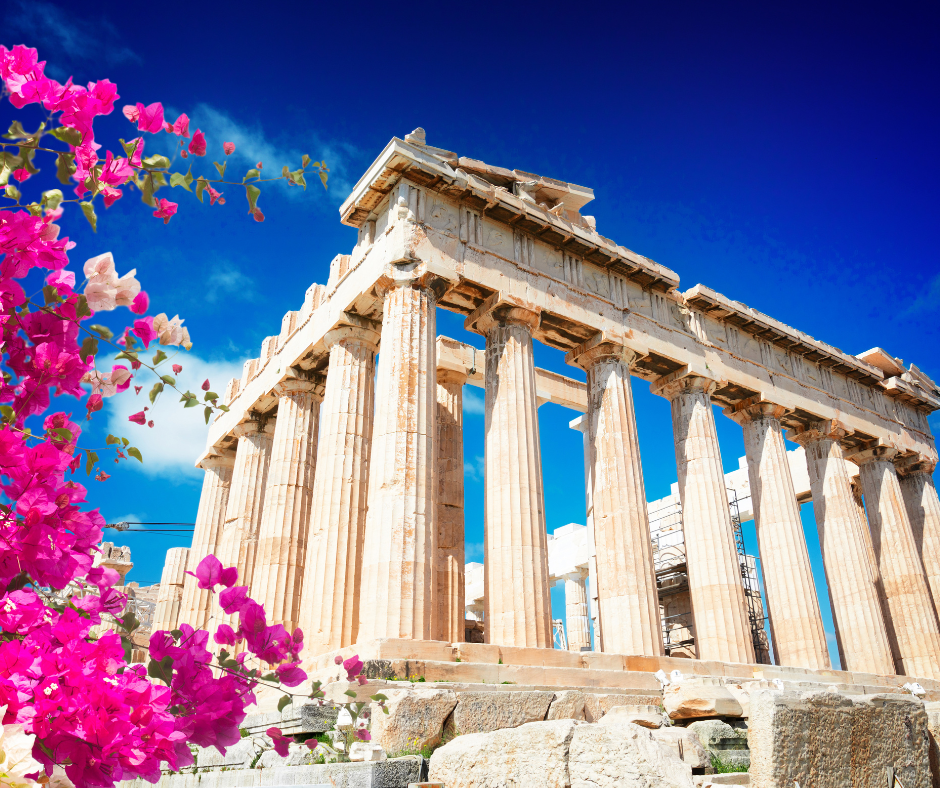

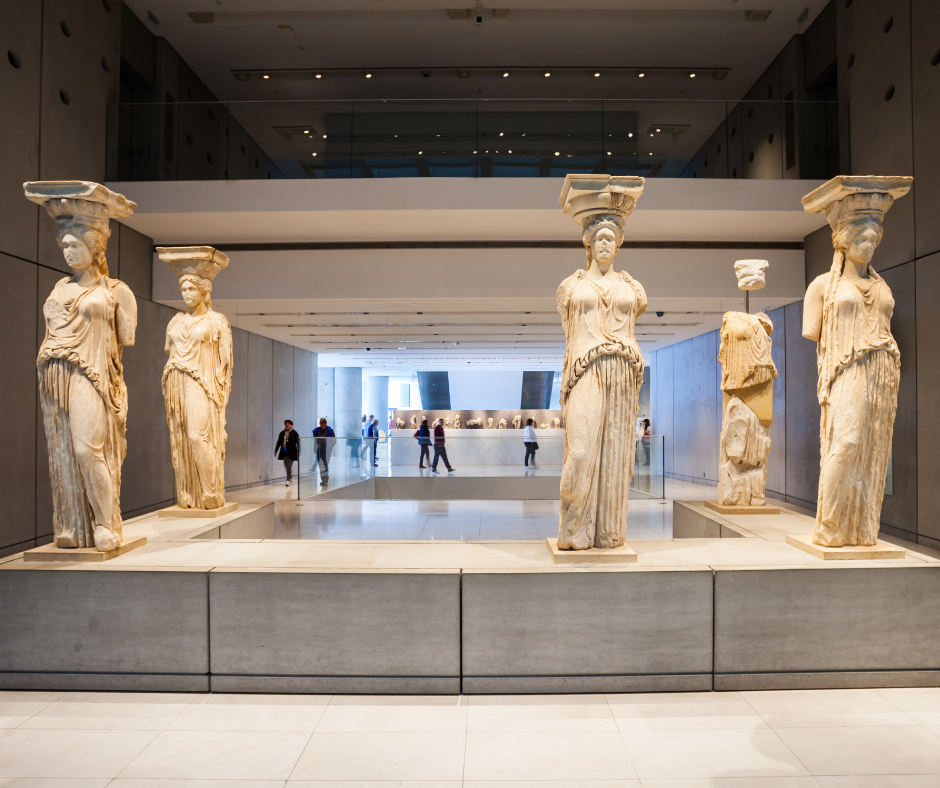
Did you know? The Acropolis Museum is closed on Mondays
TIP: athens-acropolis-skip-the-line-entry-ticket
athens-acropolis-and-6-archaeological-sites-combo-ticket
athens-cape-sounion-poseidon-temple-sunset-half-day-trip
acropolis-and-acropolis-museum-tour
Temple of Olympian Zeus: The largest temple in the ancient ruins of Athens, built in honour of Zeus, king of the gods. The temple was one of the largest temple structures in the world, with an impressive 104 columns, and was originally dedicated to Zeus with a 17-metre statue. Although only a few columns remain today, the ruins still show its former grandeur. Located right in the heart of the city, the temple is easily accessible and is an impressive example of the craftsmanship of ancient Greek architecture.


Hadrian’s Library. The Roman emperor Hadrian, Roman emperor of ancient Rome, was one of the most important Roman emperors. The former library and scientific centre is now in ruins, but its vast colonnaded foyer and some of the remaining wall fragments are still impressive. The library reflected the culture and scientific development of the Romans and played an important role in the intellectual life of Athens. Today, the site is an important landmark, offering the opportunity to step back into the ancient Roman world.
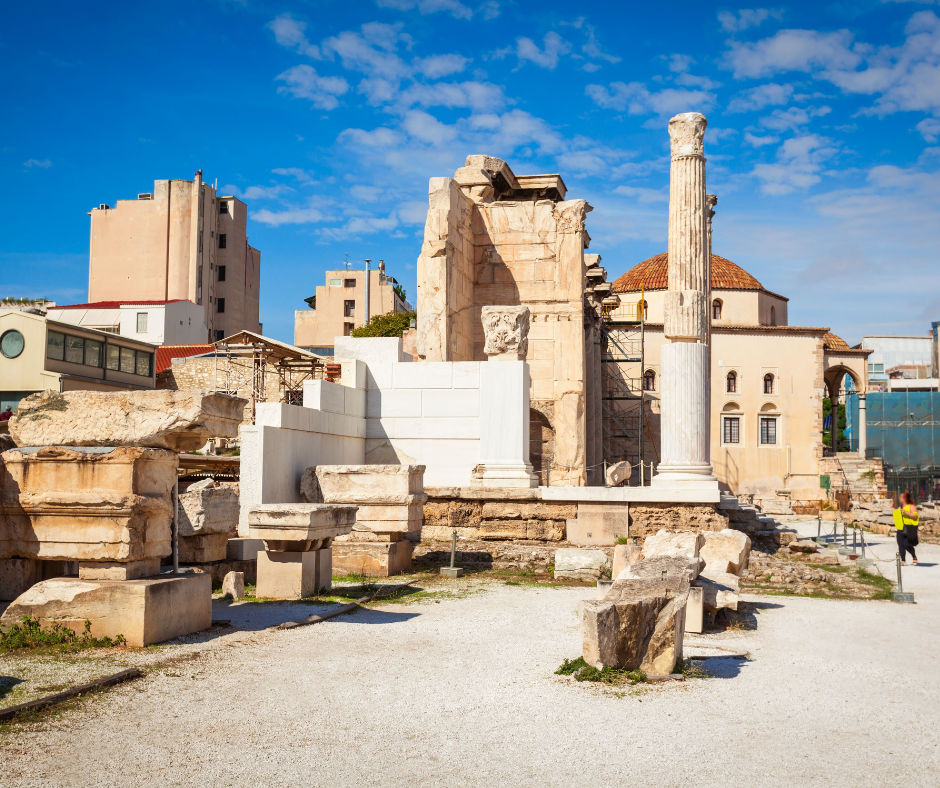
Brush up on your architectural history! It may not be essential, but it is worth at least getting a broad understanding of how old the architecture really is. To do this, it may be useful to look at the classical column orders. There are three main types of ancient ruins: the Doric is the oldest, followed by Ionic and then Corinthian.

Plaka: One of Athens’ most atmospheric neighbourhoods, with narrow cobbled streets, neoclassical buildings and charming tavernas. It’s a neighbourhood steeped in history, and you’ll find authentic Greek souvenirs in local craft shops. In the evenings, live Greek music and delicious food on the cosy terraces make the experience unforgettable.
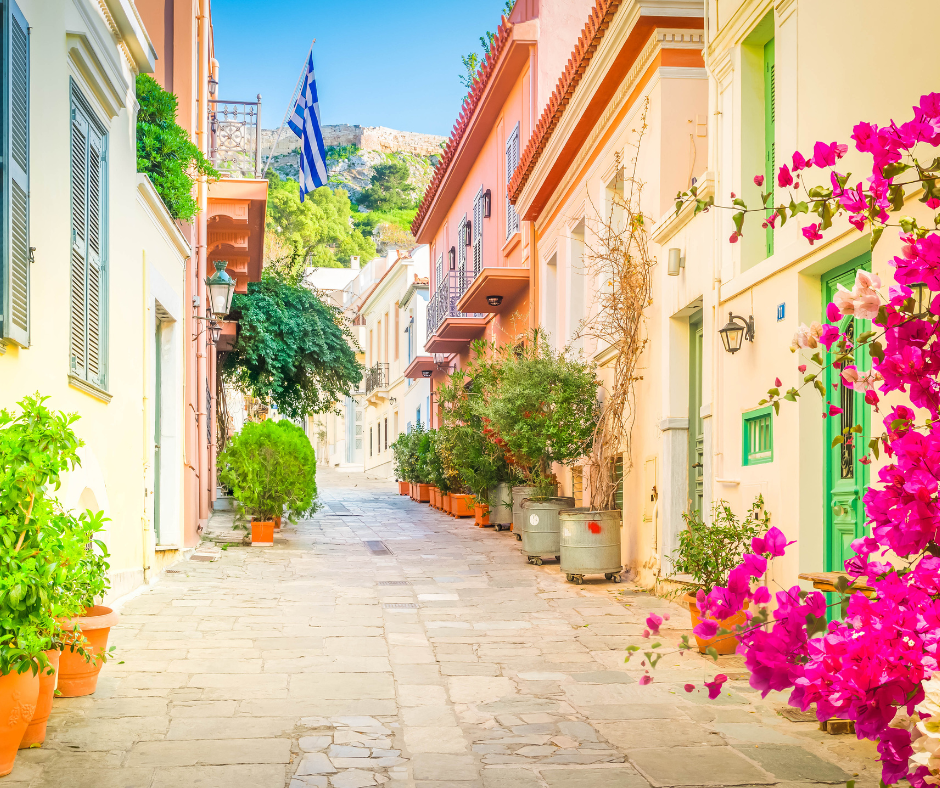
National Archaeological Museum.
TIP: national-archaeological-museum-of-athens
Syntagma Square and the Parliament: the heart of Athens and one of the busiest spots, where the Greek Parliament building stands. Here you can see the famous change of guard of the Evzones, who parade in traditional fancy dress. In the immediate vicinity of the square is the National Garden, a pleasant resting place in the bustling city.
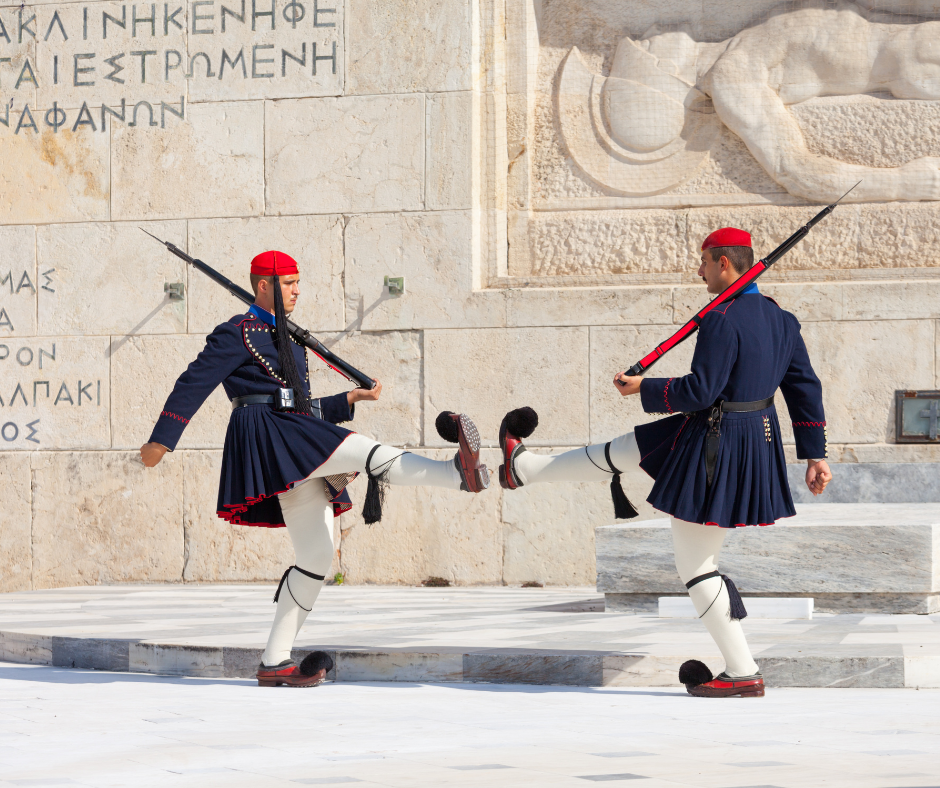
Mount Lycabettus
The highest point in Athens, offering an unrivalled view of the city, especially at sunset. You can climb to the top on foot or take a funicular. At the top, there is a small chapel and a cosy restaurant where you can enjoy a delicious dinner and a breathtaking panorama.
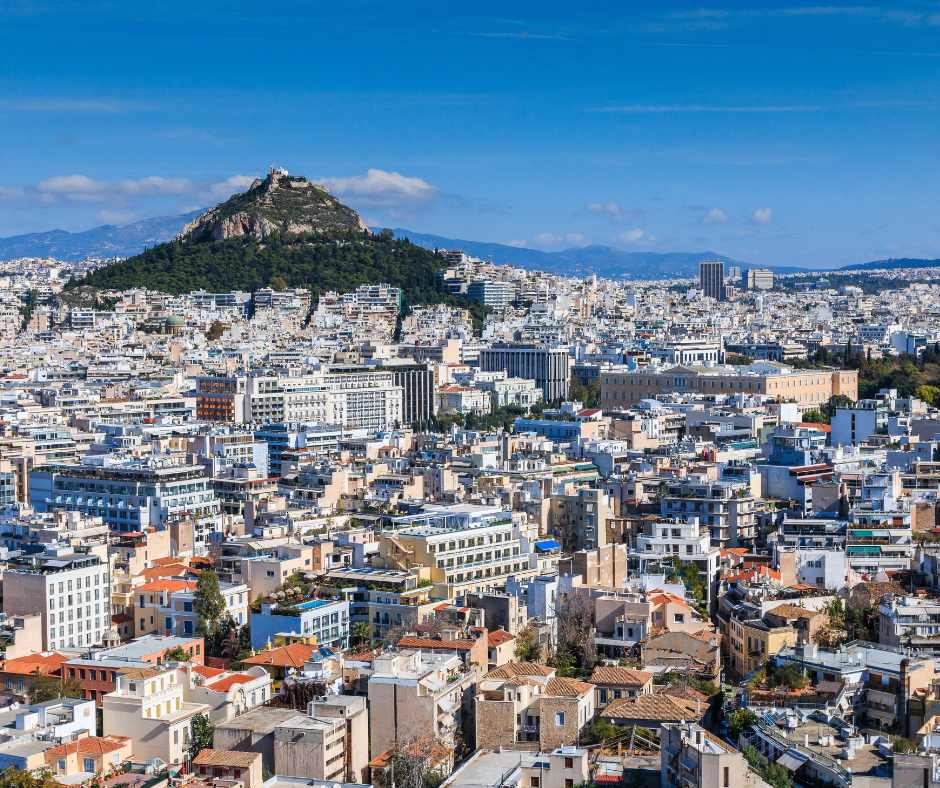
Points of interest and specialities
Athens is one of the sunniest capitals in Europe, with more than 2,800 hours of sunshine a year. In the cafés of the old town, locals can sit for hours over a cup of Greek coffee, enjoying the ‘siga-siga’ (slow-slow) lifestyle. The Monastiraki market is a treasure trove for lovers of antiques and handicrafts. Athens’ underground world is also worth exploring: during the construction of the metro, many ancient artefacts were discovered and can still be seen in the stations.
Athens and the Olympics
Athens is the birthplace of the Olympic Games, as the first modern Olympics were held here in 1896. The Panathinaikon Stadium, built entirely of marble, is the only such stadium in the world and an important stop on the Olympic torch route. The city hosted the Olympic Games again in 2004, confirming its role in the history of sport.
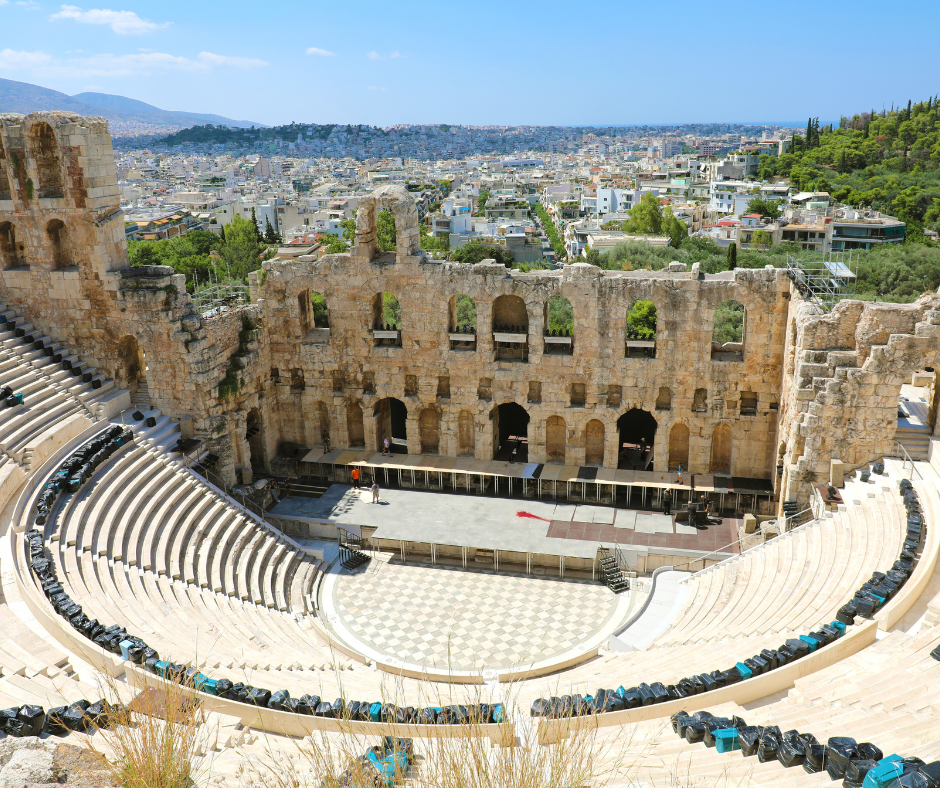

Gods and mythology
Athena, goddess of wisdom and warfare, in whose honour the Parthenon was built. According to Greek mythology, Athena and Poseidon competed to protect the city: Poseidon dug a spring of salt water, while Athena planted an olive tree – the people chose the olive tree, and Athena became the city’s protector. Athens is full of mythological sites, including the Temple of Olympian Zeus, once one of the largest Greek temples.


Gastronomy – A world of Greek flavours
The gastronomy of Athens is a true experience, blending fresh ingredients with centuries-old traditions. Local classics include souvlaki, moussaka and spanakopita (spinach strudel). A good meal is not complete without a serving of tzatziki and freshly baked pita bread. For lovers of sweets, baklava and loukoumades, which are rolled in honey and cinnamon, are a must. All topped off with a glass of retsina wine or a strong Greek coffee. Try the ouzo, the traditional Greek aniseed spirit! Diluted with water, it becomes milky opalescent and is the perfect accompaniment to seafood and meze (small appetizers, snacks,). If you want to know the history, the origin of its name and the properties of this drink, read our blog



Piraeus is much more than a port city – it’s a meeting point of sea, culture and authentic Greek lifestyle. The bustling port, the charming fish restaurants and the historic sites are all there to be explored. Athens is the perfect meeting point between the ancient and the modern world, with a new story on every street corner. Fascinating history, mythology and vibrant city life combine to create the unique charm of the Greek capital. Whether you’re admiring the timeless beauty of the Acropolis or enjoying the local flavours in a cosy taverna, Athens offers an unforgettable experience


